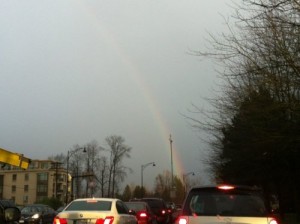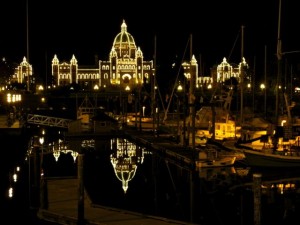Posts Tagged ‘Government’
The Impossibility of Knowing What Is To Be
Here’s the thing: none of us has a crystal ball. Not the pundits nor the prognosticators, some of whom have made very lucrative careers out of saying what they “know” will happen.
In fact, some say the events which shape the human experience are not the outcomes we forecast, but the unexpected occurrences to which we respond. For more on this, read The Black Swan: The Impact of the Highly Improbable by Nassim Nicholas Taleb.
I know I can’t speak to the future with certainty, but as I look towards the fall, I suspect my voice will be a dissenting one.
Why?
Because events are moving quickly in the public education sector with no clear indication of the government’s ultimate objective and yet there seems to be a general complacency about it all.
Here are three red-flag issues for me:
- The removal of the BCPSEA Board points to a profound change in the way bargaining will be conducted in the public education sector. I think BCPSEA paid the price for pursuing a path contrary to the provincial government’s vision. The board’s removal was sudden, swift, and seemingly–and mistakenly in my opinion–unlamented. Whether this is an improvement or not remains to be seen, but I am still looking for assurance that this is not the first step in a series of unilaterally determined shifts which may or may not prove to be publicly beneficial.
- A 10-year labour agreement with the BCTF is seductive and such an easy sell in the court of public opinion. But I’m not convinced, unless the deal is fully funded and increases resources significantly for students, that it can be accomplished in a fair and equitable manner. I am also not convinced that it is in the best interest of the employer as I’ve written about before here.
- Publicly elected school boards make a difference because they represent local interests and are accountable to local communities. The fact that we have a high-performing system today is due in large measure to the way districts (everyone from students to parents to trustees to staff to principals to teachers to support staff) have been able to keep the machine humming despite inadequate funding. Yes, the provincial government spends more per student now than ever before, but add up the costs that have been downloaded without being funded and the increases in expenses which haven’t been covered (including key items such as utility costs, MSP premiums, and carbon offsets) and you’ll see why there’s such a discrepancy. Yes, some boards have run into difficulties, and yes improvements can be made, but the attempt to disregard the government’s role in exacerbating the situation is disingenuous.
So while I may not be able to speak to what the future is bound to bring, I do know that I will continue to speak up and to advocate, even if I’m in the minority, because it doesn’t take a crystal ball to see that a healthy, thriving public education system is the best foundation for all our tomorrows.
A Question of Size
“We may not be big but we’re small!”
As CBC radio listeners know, that’s the motto of the Vinyl Café, the vinyl record store at the heart of Stuart McLean’s storytelling series.
I think the motto counterbalances another common theme of our times: “Bigger is Better”. A concept which often leads to trouble economically, politically, and environmentally.
The Vinyl Café motto is also a good fit for Lions Bay Community School, a primary school in School District 45 which enrolls approximately 60 students per year in kindergarten to Grade 3. A privately run preschool also operates on the premises.
In June, I attended the school’s leave-taking ceremony for its Grade 3s, a ceremony which marks their “graduation” and acknowledges their future status as intermediate students at other schools starting in September.
Lions Bay, it seems to me, is so big in what it does even though it is small.
Why?
Part of it is the setting. Nestled in the forest, the school seems to be swimming in an ocean of green.
Part of it is the architecture. Now over 30 years old, the school is built on an open-concept plan which allows an unparalleled flow between learning spaces and allows the teaching staff an exceptional amount of flexibility.
Part of it is the community. Families who choose to live in Lions Bay have made a specific lifestyle choice and they are active participants in the school because it is a major focus for the community.
There are challenges, too. Because it is so highly dependent on area demographics, enrollment at the school can only be maintained as long as there are young families in the area or willing longer-distance commuters (for example, if Squamish families or Horseshoe Bay residents were to choose the school for their children).
In addition to the excellent teaching staff, the supportive community, and the outstanding physical environment, size is something else that gives Lions Bay an edge. Being small helps the school fulfill its mission statement “to provide a safe learning environment and strive to enable students to become confident learners”.
The size of the school, in my opinion, keeps the student experience at the heart of operations by allowing a higher degree of personal attention. It has also sparked innovation in pedagogical approaches.
These factors have all combined to ensure success for these young students.
Being small can be effective.
Which brings me to the measures being taken to restructure the bargaining framework in BC’s public education system. Measures which I hope are not a prelude to regionalizing or eliminating Boards of Education.
As John Abbott, President of the 21st Century Learning Initiative, cautioned during a visit to West Vancouver earlier this year, losing local governance puts the future of learners at risk by distancing the local community from decision-making.
So here’s what I hope our provincial government and the leadership of BCSTA remember as they work together during the remaining days of summer.
Bigger is not always better.
Artwork by Lions Bay students on display in the gym.
Being Human and the Loss of Perspective in Politics
Errare humanum est [To err is human]. – Anonymous: Latin
For to err in opinion, though it be not the part of wise men, is at least human. – Plutarch (46-120 C.E.)
I presume you’re mortal, and may err. – James Shirley (1596-1666)
To err is human, to forgive divine. – Alexander Pope (1688-1744)
Then gently scan your brother man,/ Still gentler sister woman;/ Though they may gang a kennin’ wrang. To step aside is human. – Robert Burns, Address to the Unco Guid [1787]
“Address to the Unco Guid’ makes the point that it is this natural sympathy and compassion that is important in society: not self-righteous condemnation.” – Juliet Linden Bicket
I remembered Alexander Pope’s words this week as I watched events unfold in the BC provincial election. When I checked my copy of Bartlett’s Familiar Quotations to verify them, the footnotes led me to other quotes on the same theme and to Google for the full text of the Burns poem where I found the comment by Bicket.
And despite these wise words, which span approximately 2,000 years of human history, it would seem that in our time the motto has become “to err is human and to forgive is impossible”.
Or maybe even more to the point, “to err is human and let’s make sure everyone’s mistakes are never forgotten”.
And given our rush to judge others on this principle, it seems to me that the greatest disincentive to running for public office has become the process of getting elected.
While this trend has been emerging over time, it seems to have bloomed with noxious fervour in this election.
We’re all on the lookout for “bozo eruptions”. That’s the term applied to the actions of candidates who slip up in real time, but everything has become fair game: whether a word that’s said today or over 20 years ago, whether a misstep now or one from long ago.
And I have to ask what added value, if any, is there in this “new” way of doing politics. Does it benefit voters? Does it allow society to progress? Does it ensure the health and vitality of our democratic institutions?
Why?
Because we have made perfection a condition of holding office and yet no one is perfect. It’s not human.
Because we have lost perspective. If anything from any point in our lives can be construed as a liability, then we lose the ability to distinguish between misdemeanors and serious crimes.
Because we have forgotten that living involves choices and that we sometimes make bad choices, particularly when we’re young. But we learn and those mistakes do not necessarily or automatically make us incapable, incompetent, or untrustworthy for life.
Because setting up impossible standards for conduct and behaviour lead to unreasonable controls being implemented to maintain power once it’s been secured.
And that’s why we have a parliament full of men and women commonly derided as trained seals.
We have parliaments and legislatures which we denigrate and political representatives whom we disrespect. We have governments, political parties, and candidates who are more focused on slander and defamation, on digging up the dirt, than they are on policy and good governance.
And that’s an unforgivable mistake.
Is There Another Way ?
I walked around my son’s school yesterday to thank each teacher for their work and to express how sorry I was at the way events are unfolding in public education in British Columbia.
Why?
Because I value teachers and the work they do. Because these teachers, whether early in their careers or with many year’s experience, are caught up, as I am, in forces seemingly beyond our control.
 We are spectators to a drama that is playing out on a stage where provincial representatives, whether union or government, cannot find a way to talk to each other. In the absence of dialogue, labeling and name-calling have become the norm. In the absence of a willingness to work towards compromise, brinksmanship has become the norm whether by using the media, social media, or the mechanisms of legislation.
We are spectators to a drama that is playing out on a stage where provincial representatives, whether union or government, cannot find a way to talk to each other. In the absence of dialogue, labeling and name-calling have become the norm. In the absence of a willingness to work towards compromise, brinksmanship has become the norm whether by using the media, social media, or the mechanisms of legislation.
And as much as it is being said that teachers are not shown respect, I feel respect is not being shown towards others in the educational community such as administrators, Trustees, or parents. This disrespect has pervaded the discourse and was on display during George Abbott’s recent Twitter chat. Whatever you may think of the man, his role, and the government he represents, were the derogatory personalized attacks warranted? If you call him a bully or see him as one, is the appropriate response to bully him?
So if our system is dysfunctional, which only serves to harm the interests of those it’s purporting to serve, is there another way forward?
During a recent liaison meeting with administrators, we watched a TEDTalk by Seth Godin in which he talks about starting movements to bring about change.
I’m not sure how and I’m not sure when and I may not be the person to do it, but I would like to start a movement for change in the BC public education system.
To start, I would like to call for a Royal Commission on Education. There hasn’t been one held in BC since 1987, the results of which were captured in a 1988 report entitled A Legacy for Learners.
While expensive and time-consuming, I believe that this high-level, independent, wide-ranging forum is the only way we can capture the big picture of education, its purpose, its link to society, and the way in which its objectives can be fulfilled in the best interest of the students.
I would also suggest, as our understanding has grown over the last 25 years, that a more holistic approach be taken. To truly effect societal change we need to consider education as only one component in a child’s life which links to health and socio-economic well-being among other factors. This would be one way to capture information from other Ministries which may lead to conclusions and recommendations that are transformative in the way we structure programs and services which most affect children and families in this province.
After all, it’s all about the children, isn’t it?


